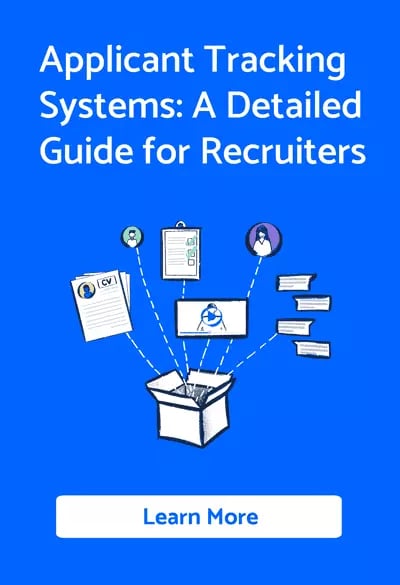The cost of bad hires to UK businesses every week exceeds £400million.
£402,029,320 to be exact. 😱
That's INSANE.
Making a bad hire can be costly for any company. Not only can it affect your team's productivity, but it can also negatively impact your company's culture and reputation.
In fact, studies have shown that the cost of a bad hire can range from tens of thousands of dollars to as much as $1 million.
The cost of a bad hire includes the expenses associated with recruiting and training a replacement and the lost productivity, and potential damage to your company's reputation.
A bad hire can cause disruptions to team dynamics, leading to decreased morale and increased turnover. It can also result in lost revenue and missed opportunities for business growth.
However, there are ways to avoid the cost of a bad hire. Here are some helpful tips to ensure you make the right hiring decisions.
Tip #1: Plan Ahead and Hire in Advance
One way to avoid the cost of a bad hire is to plan ahead and hire in advance.
Rushing to fill a position at the last minute can lead to making a hasty decision and potentially hiring the wrong person.
According to a survey by LinkedIn, 52% of recruiters believe the hiring process takes longer than five years ago.
Planning ahead and starting the hiring process early gives you more time to evaluate candidates and find the right fit for your team. You can also avoid the stress and pressure of filling a position quickly.
On GoHire, companies typically start the hiring process 6 months in advance.
Starting the hiring process 1 or 2 months before you need someone to start work is a bad idea and absolutely contributes to costly hiring mistakes.
Tip #2: Define the Job Description and Ideal Candidate
Defining the job description and the ideal candidate is crucial in avoiding a bad hire. According to a recent survey, 72% of employers provide clear job descriptions for open positions, yet only 36% of job seekers say they always receive a clear job description.
Start by outlining the required skills, experience, and qualifications for the job. It's also essential to identify the personality traits that would make someone a good fit for your company culture.
By doing this, you can ensure that you're attracting and selecting candidates who match the job and the company.
You can access 100s of job description templates, or create your own original job description with our AI generator.
Tip #3: Conduct a Thorough Interview Process
Conducting a thorough interview process is essential to assess a candidate's qualifications, experience, and fit with your company culture.
According to a survey by Glassdoor, the average interview process in the US takes 23 days.
It's essential to have a structured and thorough interview process that includes asking questions about the candidate's experience, work style, and problem-solving abilities.
Ensure to also ask behavioural questions that give insight into the candidate's past performance and decision-making skills. And feel free to ask for work samples or conduct skills tests to verify their abilities.
💡 Related Read:
Tip #4: Check References and Conduct Background Checks
Checking a candidate's references is an essential part of the hiring process.
Contact their former employers and ask specific questions about the candidate's work ethic, skills, and reliability.
It's also a good idea to conduct background checks to verify their education and employment history and any criminal records.
This information can help you make a more informed hiring decision.
According to a survey by HireRight, 84% of employers reported that background screening uncovered issues that wouldn't have been caught otherwise.
Tip #5: Utilise Technology to Your Advantage
Many tools and technologies available today can help you make better hiring decisions.
According to a survey by HR Daily Advisor, 78% of recruiters and hiring managers believe that technology has improved their hiring process.
Applicant tracking systems can help you manage the hiring process more efficiently, while background check services can provide more comprehensive information about a candidate's background.
Psychometric assessments and skills tests can provide valuable insights into a candidate's abilities and work style.
Tip #6: Trust Your Instincts
Sometimes a candidate can look great on paper but not be the right fit for your company.
That's why it's essential to trust your instincts when it comes to hiring. If something feels off about a candidate, don't ignore it.
Pay attention to nonverbal cues and listen to your gut. It's better to take a bit longer to find the right candidate than to rush into a bad
In conclusion, avoiding the cost of a bad hire is essential for any company
By defining the job description and ideal candidate, conducting a thorough interview process, checking references and conducting background checks, utilising technology to your advantage, trusting your instincts, and planning ahead and hiring in advance, you can make better hiring decisions and avoid the negative impacts of a bad hire.
Remember, taking the time to find the right fit for your team will pay off in the long run, both financially and in terms of your company's culture and reputation.
Most importantly, plan ahead and start the recruitment process well before you need to hire people.





